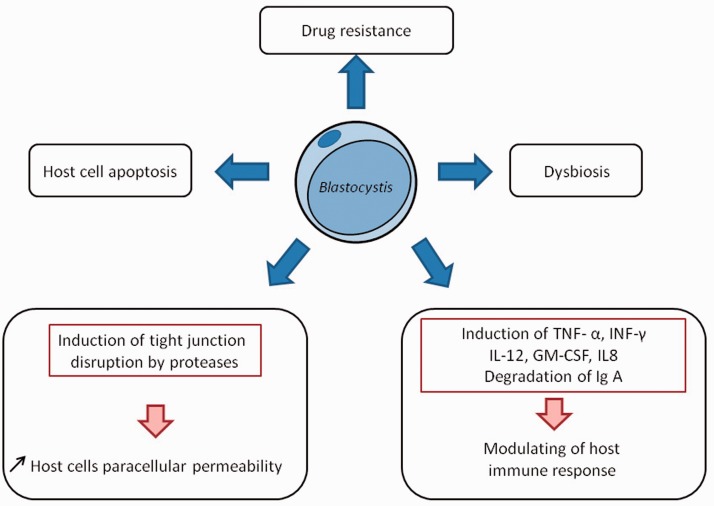Figure 3.
Mechanisms of blastocystosis physiopathology. Blastocystis sp. may release cysteine protease that may participate in the attack of intestinal epithelium with other hydrolases and may cause the increase in paracellular permeability that is observed in several digestive pathologies such as irritable bowel syndrome (IBS). Blastocystis sp. is able to induce physiological disturbances linked to IBS: host cell apoptosis, the modulation of host immune response and a microinflammation. Some as yet uncharacterized secondary metabolites produced by the polyketide synthase or nonribosomal peptide synthases could participate in host intestinal symptoms by inducing changes in the host microbiota, another feature of IBS. Finally, drug-resistant isolates of the parasite could be explained by the presence of multidrug resistance proteins that could eject active drugs. GM-CSF, granulocyte–macrophage colony-stimulating factor; Ig, immunoglobulin; IL, interleukin; INF, interferon; TNF, tumour necrosis factor.

